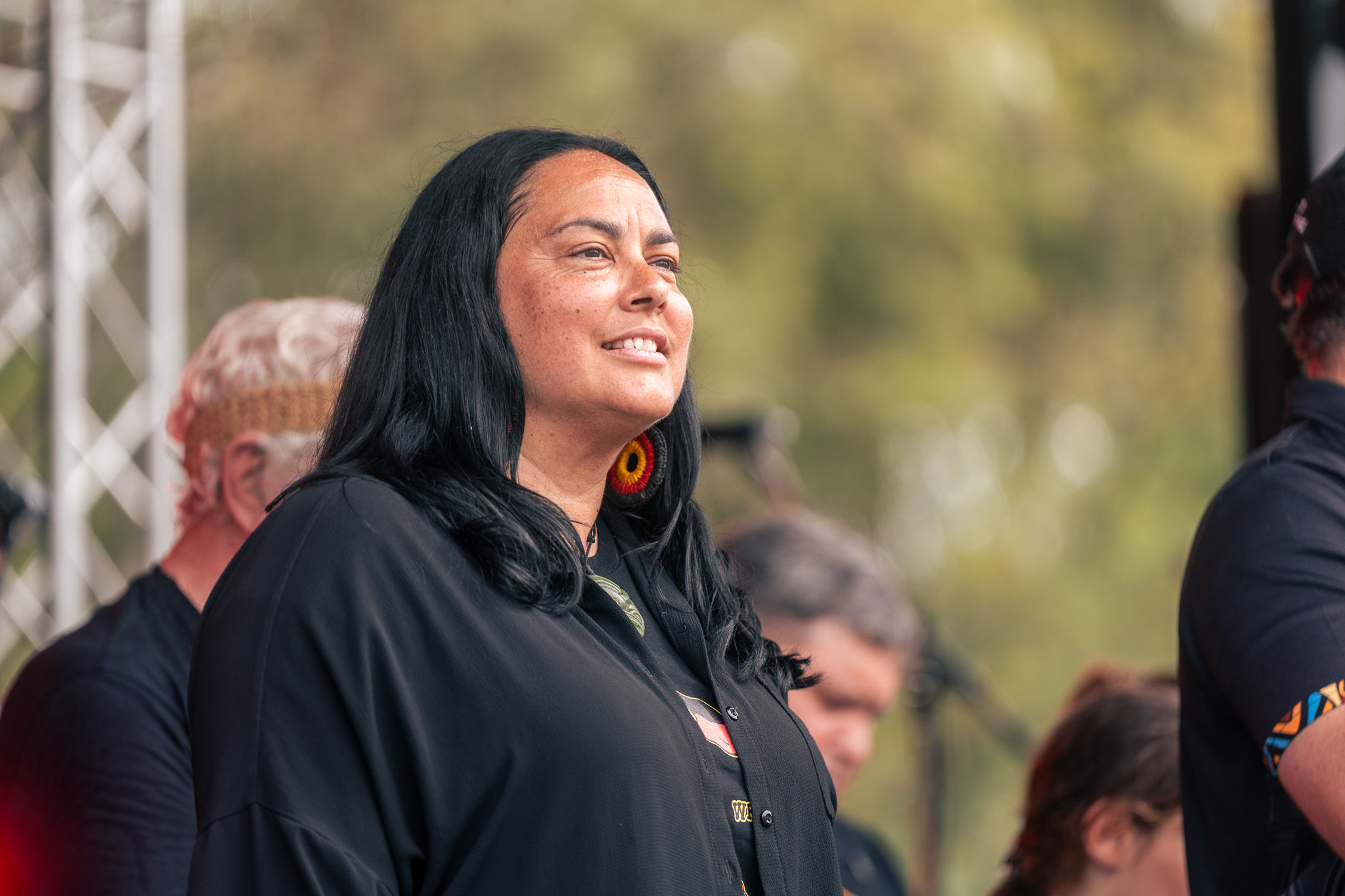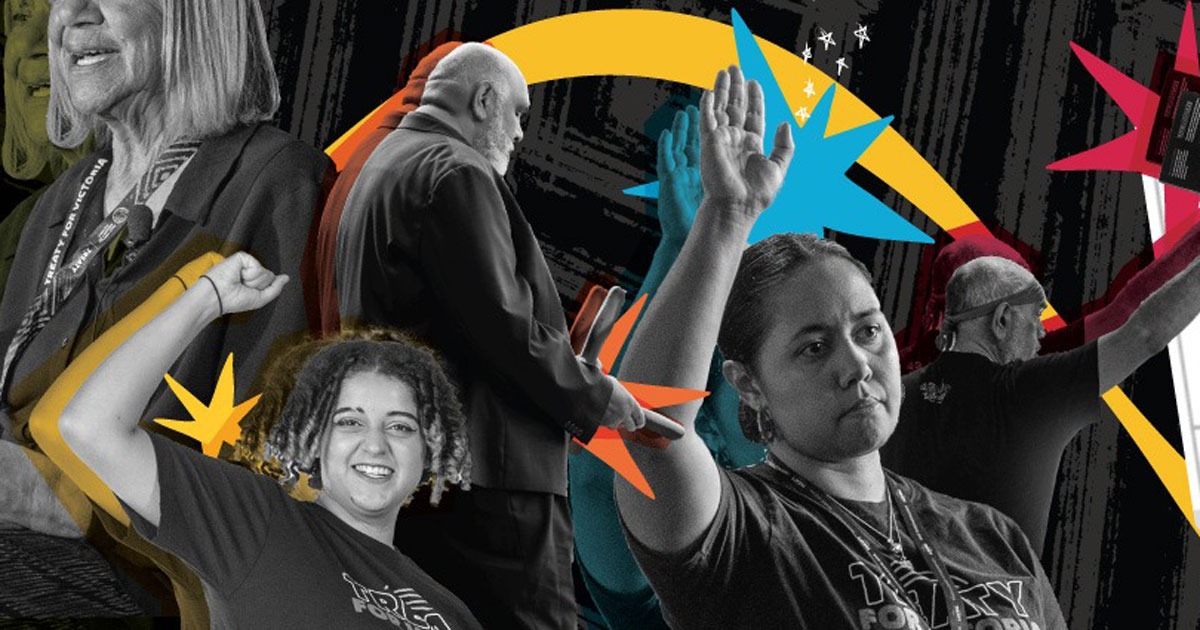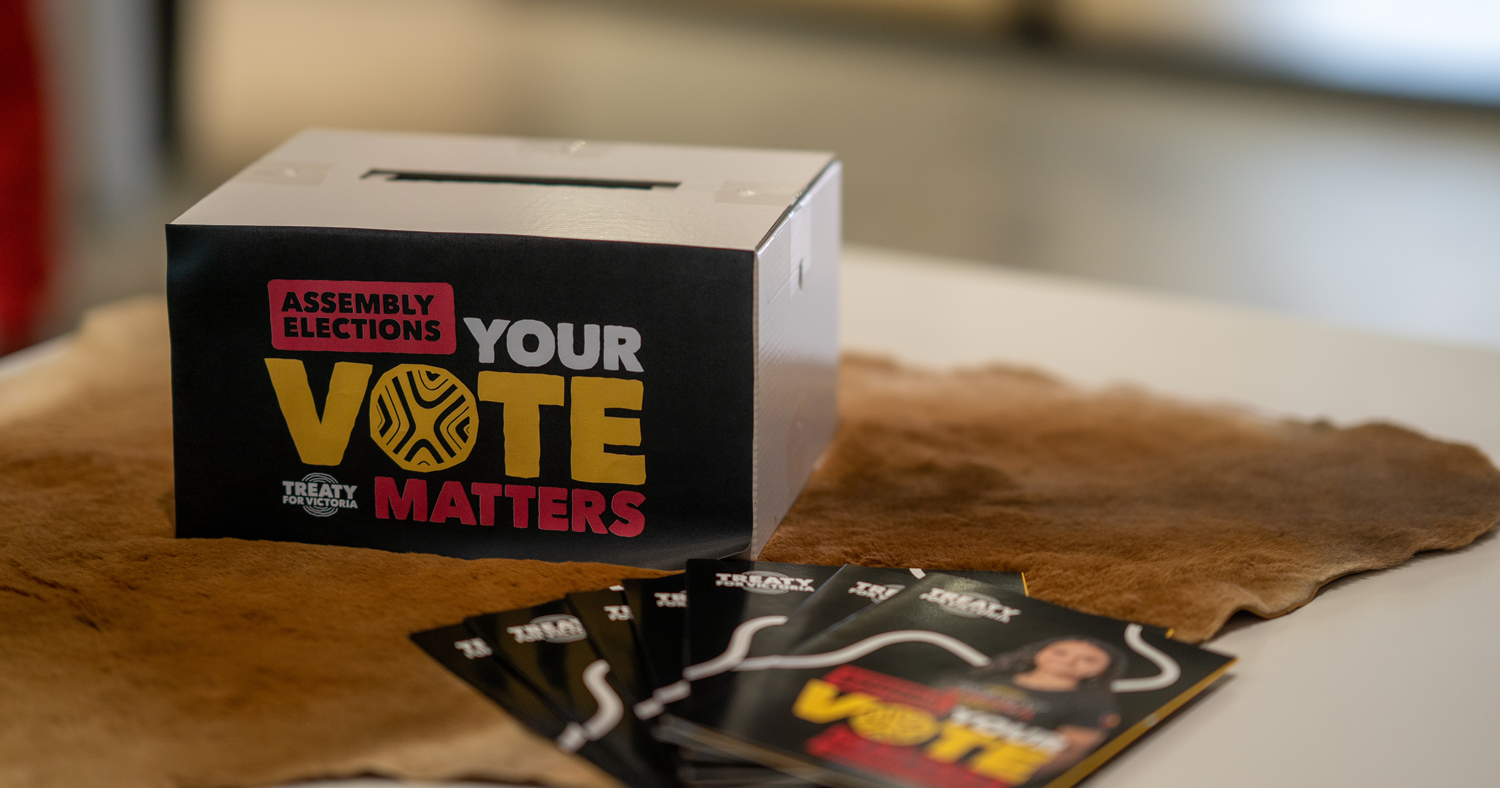A set of funding guidelines about the First Peoples’ Assembly’s Self-Determination Fund have been released for Traditional Owners of Country wanting to start preparations for Treaty negotiations with the Victorian Government.
Alongside the Assembly’s negotiation of a statewide Treaty – that will cover ‘big picture’ reforms to deliver better outcomes across areas such as education, health and justice – the Assembly will also empower Traditional Owner groups to negotiate Treaties that reflect aspirations and priorities specific to their areas.
The Self-Determination Fund, set up and overseen by the Assembly, was created to enable Traditional Owners to enter Treaty negotiations with the Victorian Government on a more level playing field, as well as to help First Nations communities build wealth for future generations.

Wamba Wamba, Yorta Yorta, Dhudhuroa and Dja Dja Wurrung woman and Assembly Co-Chair, Ngarra Murray, said the guidelines outline how the Fund will support Traditional Owner groups through the first two of five phases of Treaty-making.
“This is a shared resource for all Traditional Owners who want to get serious about Treaty-making. It doesn’t matter if a group doesn’t have existing recognition status under the government’s legislation, we want mob to be able to organise themselves to prepare for treaties and form their delegations,” said Ms Murray.
During the first phase the Fund will make up to $200,000 available to Traditional Owner groups to provide immediate support for the group to come together and form their aspirations for Treaty. The Fund will take an inclusive and flexible approach to the definition of Traditional Owner Group (guided by the Treaty Negotiation Framework definition).
“In some areas it’s going to take a lot of time and effort, but the incentive to work collaboratively and inclusively is here. So, our message to Traditional Owners is have a look at the guidelines and start thinking ahead. Some groups might look at using the funds to employ a Treaty Manager or Organiser to have the yarns with their Community and start developing the cultural governance structures and decision-making processes,” said Ms Murray.
Further funding will be available for each group of Traditional Owners to work towards meeting Minimum Standards and forming a delegation for Treaty negotiations.
Gunaikurnai man and Chair of the Assembly’s Self-Determination Fund Committee, Troy McDonald, said the phase two funding could support Traditional Owner groups to establish Treaty leadership groups and develop their Treaty priorities, undertake cultural mapping and heritage surveys, engage any necessary experts and advisors, and run governance training.
“For Treaty to improve our peoples’ lives and create a better future, Traditional Owner groups must be able to fully participate and invest their time in the Treaty process. This funding will help cover the practical needs for the vital preparation work, but also just help provide the time and space for communities to think about and plan for what they want Treaty to deliver,” Mr McDonald said.
Although the Self-Determination Fund has been created by and is owned by the Assembly, the Fund is administered by five independent experts – Nadina Brockhurst, Chris Croker, Rohan Henry, Jason Mifsud and Lisa Briggs. All are First Nations people with extensive financial, community and governance experience.
The Fund plans to open applications for funding for the first two phases of Treaty-making by the end of the year. Applications will be open for 2 years or until the funding allocation is exhausted.



